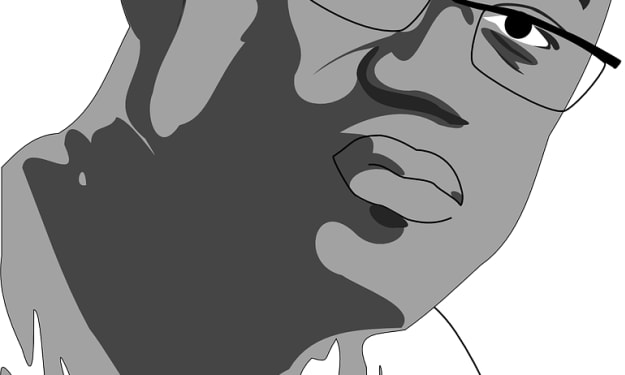Moreno Montanari, "La filosofia come cura"
The re-evaluation of negative thoughts

The Tracce Mursia series favors a descending approach to philosophy, a descent of speculation towards the individual, helping him in his daily life. Moreno Montanari’s essay, “Philosophy as a cure”, is an excursus on philosophical thought, with particular attention to philosophers of psychoanalytic content and to oriental philosophies, in a sort of “fusion”, between Hegel, Nietzsche and the practices of meditation, all integrated in a holistic sense. The text is placed within today’s anti-negative orientation, overturning it.
The image that we are forced to give of ourselves today is that of positive, sunny, healthy, wealthy and always happy people. Every suffering, every reflection on death and illness, on the usefulness of life, must be hidden, removed, banished, otherwise we are negative, we attract evil, we bring harm to others. Being unhappy is no longer in vogue, the use of antidepressants has increased exponentially, anyone who experiences emotions that are difficult to manage, anyone who has suffered a loss, takes a saving pill, as if mourning a dead person were no longer natural. And not only drugs are used for severe post-traumatic depression, but also for small discomforts, such as not wanting to study or feeling down during the holidays.
There are three approaches to suffering: the medical one, which considers evil as an organic product and cures it with drugs, medicalising every aspect of reality, the psychosomatic one, which cures it with psychoanalysis, and the one chosen by Moreno, i.e. the philosophical one.
Since the time of Heraclitus, philosophy urges us not to judge, not to pronounce what is good and what is bad, what must be maintained and what must be eradicated. Even evil, like any other element, is part of the whole, in a holistic view. Suffering is not the product of sin nor is it a disease, but a resource not to be neglected or removed. Moreno Montanari pushes us to re-evaluate the negative and pain as extraordinary stimuli to achieve a more authentic self. Feeling bad even psychologically helps to strengthen oneself, to react, to bear, which does not mean suffering unnecessarily or idealizing pain.
“The experience of suffering, however painful it may be, in fact brings with it the possibility of activating forces, qualities, reflections and feelings that otherwise we would never know or activate.”
Montanari talks about iatrogenesis of the disease. It is the doctor who establishes that we are sick or depressed, transforming existential and human problems into pathologies to be treated with medicines, taking responsibility for his life away from the patient, making him dependent on external figures.
The essay addresses the problem of suffering from a hermeneutical point of view. Suffering creates anguish, angst, and anguish is the push, the call, which allows an interrogation on lifestyle, aimed at reaching a truer self. Authenticity, mind you, is not intrinsic to the subject or innate, but a way of placing oneself in reality and with others, in short, a way of living.
“Authenticity is not only the fruit of the awareness that one gains by questioning one’s way of being in the world, but also the effect of the decision to take possession of one’s possibilities of being, designing them starting from our most specific peculiarities, i.e. from what most characterizes us.”
Heidegger speaks of oneself as opposed to the passive self. Not being authentic means adapting to the obligations of passive self, out of weakness and inability to take responsibility for what we really are, settling into a comfortable conformity without really taking care of ourselves, as philosophy teaches us to do.
Eastern philosophies — Buddhism in particular — are a great help in this process of taking charge and taking care of ourselves, if we do not consider them as religions, nor as philosophies, but rather as real psychotherapies.
Buddhism considers discomfort and pain as something to be experienced because the means to overcome it are in the experience itself, in a word, the journey is already the goal and the evil must be felt, crossed, not pushed away.
“We should not regard the emotional and physical discomforts, worries, fears and sufferings we experience as obstacles to be avoided on the path to overcoming suffering because they themselves indeed constitute the path.”
On the road to self-knowledge, isolation and individualism are counterproductive. Only the comparison with the other reveals us to ourselves and highlights the real range of qualities that we only imagined we possessed. Going out of ourselves makes us see how others see us and not with that false identity that we have built for ourselves, the “false self”.
“The subject who feels maddeningly lacking endows himself, but only imaginatively, with qualities that he would like to have because he recognizes them as winners. Under this thrust, the individual can even get to convince himself that he really possesses those qualities that he has only imagined. […] Thus, when one finds oneself directly accountable for these presumed qualities on public occasions (during interrogations at school or university, in certain tests at work, in amorous confrontation, etc.) one remains crushed by the fear of the judgment of others and by the concern for the difficulty and the absolutely disproportionate importance that the test assumes in one’s eyes and, terrified by the fear of not having at all those qualities that one deluded oneself to possess, one risks being blocked, giving up on the ‘face the test or fall into a panic.”
Today we are depressed no longer out of guilt but out of a sense of inadequacy. Man naturally tends towards completeness and emphasizes the importance of what he lacks over what he has. Lacan even hypothesized that man seeks only in a fictitious way to realize his own desire but in reality works to maintain it. It is useful to reduce desires in the light of what is actually within our reach, learning to appreciate what we already have and to live with what we lack. The void will then no longer produce horror vacui but will be a void deprived of its negative qualities, a positive void, the vehicle to lead us from a subjective reality, conceived and individualistic, to true reality, and to ourselves in our authenticity.
Meditation comes to our rescue, training us to suspend judgment, and it is a practice that must always be regained with training. Breathing helps us relax and act on our thoughts and emotions. The difficulties we encounter in meditation are themselves the path to realization.
Our character is our destiny, although the future does not depend exclusively on us because many external variables contribute to its realization. By trying to control our world to make it comfortable and safe, we shrink it and end up living a surrogate life. Habit is not in itself harmful, rather the unawareness that accompanies it is. Knowing our habits and what causes them means knowing ourselves.
Knowing yourself means valuing your talents without pursuing those that are not yours. Learning to decide is the hardest thing and you can only get it by getting used to it, by ceasing to delegate responsibility for your destiny to others. Today’s crisis of values and references forces us to decide without a shared external order and this scares us, we do not experience it as freedom but rather as an overwhelming responsibility. The Nietzschean man is exhausted by his sovereignty over himself, by his overmorality.
Everything is possible in life and it is easy for our expectations not to come true. Instead of striving for unattainable perfection, better familiarize yourself with uncertainty, with the possibility of failure, illness, death. We are authentic only if we are aware of our indeterminacy and transience. Illusions help, but it’s only the confrontation with uncomfortable reality that makes us real. We cannot remain steadfast in what we are without trying to improve ourselves but also without wanting to be completely different, on pain of depression, the sense of insufficiency and unsuitability. We are what we believe we are but also what we don’t know we are, in a continuous oscillation between the ideal and the real self.
“It is in life and not in the ideal that our identity is realized”.
We must therefore not conform to a self-imposed or externally imposed ideal but adapt to the life that flows, which always requires us to be different, which is unpredictable and which cannot be controlled by us.
Even the past must be reviewed, since, if it cannot be changed, one can however consider what has been in a different way, modifying the influence of events on us, overcoming feelings of guilt, understanding that we are just as we are thanks to what we have experienced.
“We are the outcome of what we have experienced, we are what has happened to us and the way we have elaborated it: our present includes our entire past and every time we say yes to a single moment of our life we reaffirm it in its entirety.”
In conclusion to his essay, Montanari dwells on his favorite philosopher, Nietzsche, focusing on the concept of nihilism. Ours is a society in which God is dead, values have a human and historical character and we have realized that life has no meaning. However, this must not lead us to a form of passive nihilism, but to its opposite, to active nihilism. Life has no meaning, it’s true, but that doesn’t mean it’s not beautiful. Life has value as it is, only because it is life, it does not need a meaning, an end, a transcendence to order it and move it. Living is already the best there is, beyond good and evil, and without placing man at the center of things, but in harmony with the biosphere.
According to Montanari, the only possibility of giving meaning to existence is communion with others. Only if others also see what we see and hear what we hear can we be sure of the existence of the world and of ourselves.
Everything that is born is destined to die, often without warning. Westerners are taught to deny death, to consider it an unpronounceable taboo. But death must be the object of meditation, because only by thinking about it, only by putting ourselves in the shoes of someone who is about to die, can we give value to life, appreciate it, not waste it, aiming at asceticism, self-care, the liquidation of any alibi for our condition. In this way death will not terrify us, not so much in its bloody process, as for the agony of a life that ends without ever having been lived.
“It is a mistake to waste the hours in the hope of reaching life’s goals.”
About the Creator
Patrizia Poli
Patrizia Poli was born in Livorno in 1961. Writer of fiction and blogger, she published seven novels.
Enjoyed the story? Support the Creator.
Subscribe for free to receive all their stories in your feed. You could also pledge your support or give them a one-off tip, letting them know you appreciate their work.






Comments
There are no comments for this story
Be the first to respond and start the conversation.